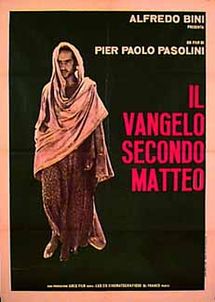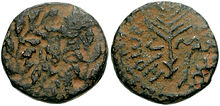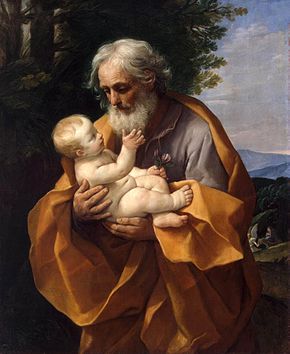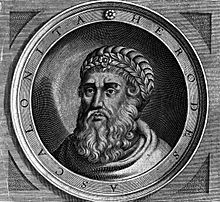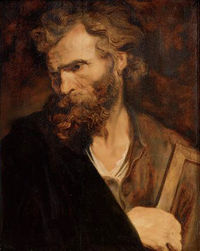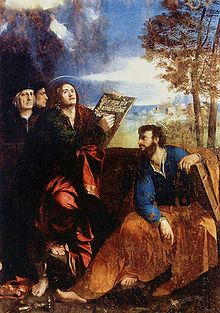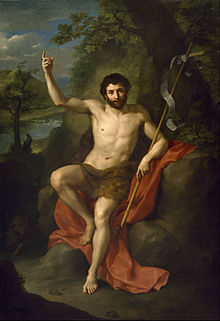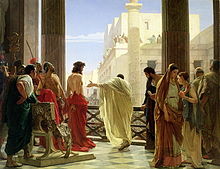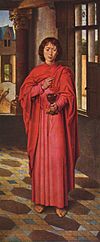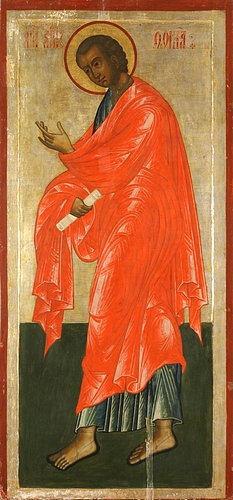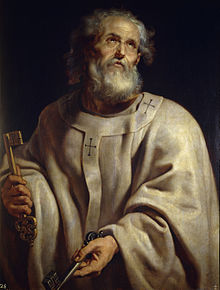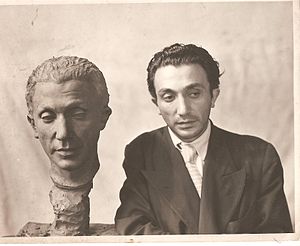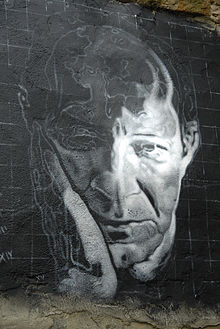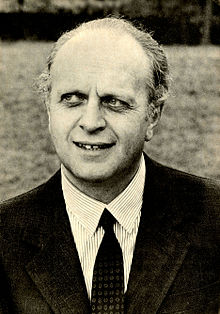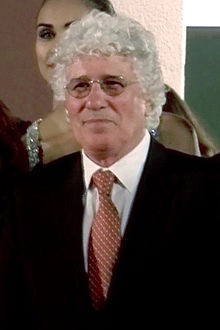The Gospel According to St. Matthew (film)
The Gospel According to St. Matthew Italian Il Vangelo secondo Matteo is a 1964 Italian biographical drama film directed by Pier Paolo Pasolini. It is a cinematic rendition of the story of Jesus Christ according to the Gospel of Saint Matthew, from the Nativity through the Resurrection. In 2015, it was hailed by the Vatican as the best film on Christ ever made.
In Palestine during the Roman Empire, Jesus Christ of Nazareth travels around the country with his disciples preaching to the people about God and salvation of their souls. He is the son of God and the prophesied messiah, but not everyone believes his tale. He is arrested by the Romans and crucified. He rises from the dead after three days.In 1963, the figure of Christ appeared in Pier Paolo Pasolinis short film La ricotta, included in the omnibus film RoGoPaG, which led to controversy and a jail sentence for the allegedly blasphemous and obscene content in the film. According to Barth David Schwartzs book Pasolini Requiem 1992, the impetus for the film took place in 1962. Pasolini had accepted Pope John XXIIIs invitation for a new dialogue with nonCatholic artists, and subsequently visited the town of Assisi to attend a seminar at a Franciscan monastery there. The papal visit caused traffic jams in the town, leaving Pasolini confined to his hotel room there, he came across a copy of the New Testament. Pasolini read all four Gospels straight through, and he claimed that adapting a film from one of them threw in the shade all the other ideas for work I had in my head. Unlike previous cinematic depictions of Jesus life, Pasolinis film does not embellish the biblical account with any literary or dramatic inventions, nor does it present an amalgam of the four Gospels subsequent films which would adhere as closely as possible to one Gospel account are 1979s Jesus, based on the Gospel of Luke, and 2003s The Gospel of John. Pasolini stated that he decided to remake the Gospel by analogy and the films sparse dialogue all comes directly from the Bible. ........
Source: Wikipedia

